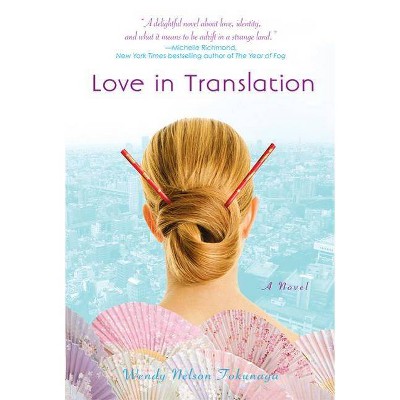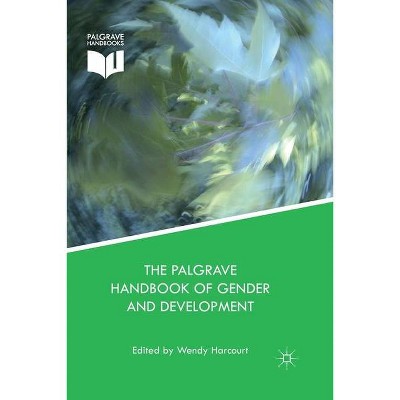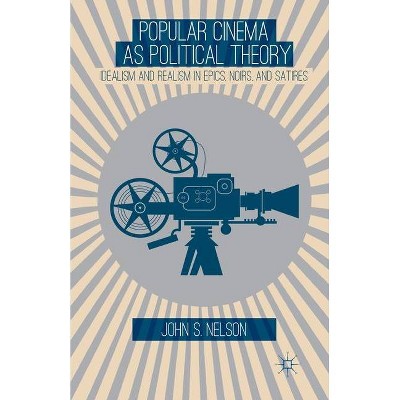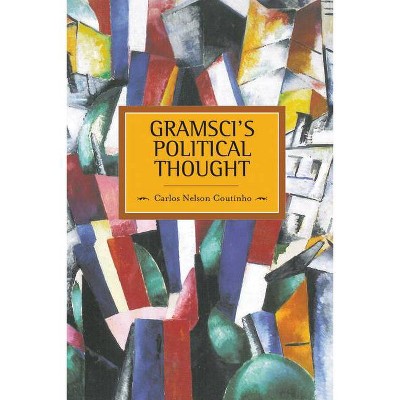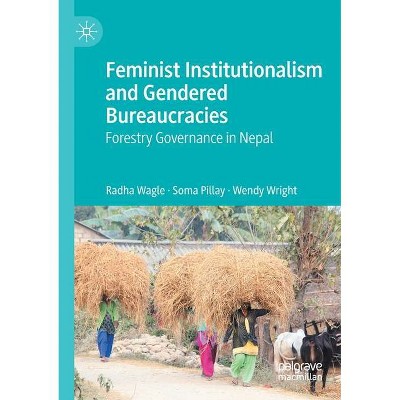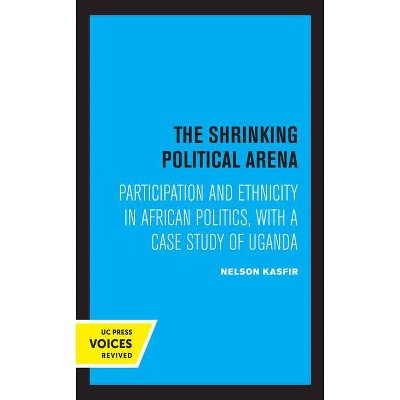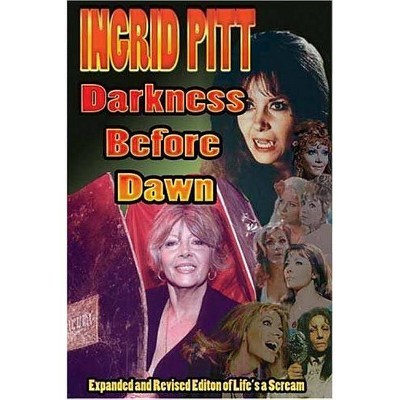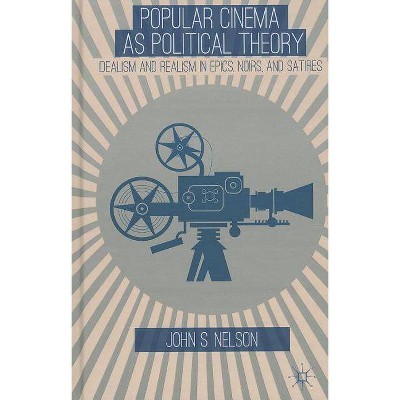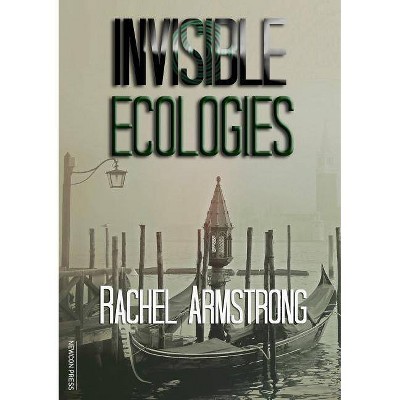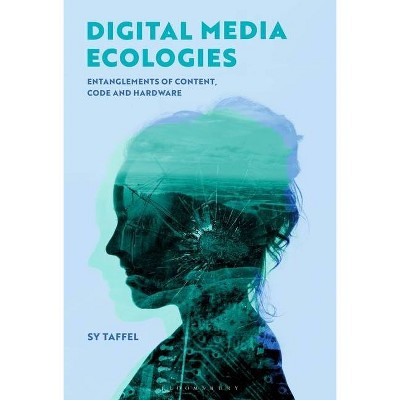Practising Feminist Political Ecologies - by Wendy Harcourt & Ingrid L Nelson (Paperback)
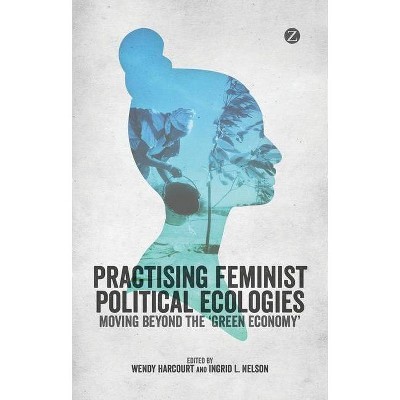
Similar Products
Products of same category from the store
AllProduct info
<p/><br></br><p><b> About the Book </b></p></br></br><P>This timely and important book launches the Zed Books Gender, Development and Environment series. In challenging the discourse around the green economy the book is an important new contribution to environmental studies. <P>Destined to be the next big feminist political ecology text, the volume features some of the most exciting feminist scholars and activists working on FPE in this collective critique of the green economy . It features the latest analysis of the post-Rio+20 debates with a nuanced reading of the impact of the current ecological and economic crisis on diverse women and their communities and ecologies. It answers the call from a wide audience that wants to know and understand the new thinking on feminist political ecology today. <P>By having such well-known authors including Dianne Rocheleau, Catherine Walsh and Christa Wichterich along with an upcoming generation of new activist scholars, it fills the gap in the environment and gender literature. This new, politically timely and engaging text puts feminist political ecology back on the map.<P>"<p/><br></br><p><b> Book Synopsis </b></p></br></br><p>Destined to transform its field, this volume features some of the most exciting feminist scholars and activists working within feminist political ecology, including Giovanna Di Chiro, Dianne Rocheleau, Catherine Walsh and Christa Wichterich. Offering a collective critique of the 'green economy', it features the latest analyses of the post-Rio+20 debates alongside a nuanced reading of the impact of the current ecological and economic crises on women as well as their communities and ecologies. <p/>This new, politically timely and engaging text puts feminist political ecology back on the map.</p><p/><br></br><p><b> Review Quotes </b></p></br></br><br><p>"This outstanding volume at last brings us a much-awaited sequel to the highly acclaimed <i>Feminist Political Ecology</i>. It illustrates like no other book I know the unprecedented coalitions being pioneered by women in regions across the world." --<i>Arturo Escobar, University of North Carolina at Chapel Hill</i> <p/>"Moving beyond narratives of eco-hero/ines to nuanced explorations of identity, activism, and the complexity of environmental justice in the lived world, this collection represents a high-water mark in the new feminist political ecology." --<i>Joni Seager, author of Earth Follies and Carson's Silent Spring</i> <p/>"This wonderful book brings vital counter-visions and practices to today's debates about the green economy and sustainable development. This should be required reading for all concerned with the troubling future of humanity on our planet." --<i>Melissa Leach, University of Sussex</i></p><br><p/><br></br><p><b> About the Author </b></p></br></br><p>Wendy Harcourt is associate professor at the International Institute of Social Studies, Erasmus University. She was editor-in-chief of the journal <i>Development</i> from 1995 to 2012 and during that period published five books, including <i>Women and Politics of Place</i> with Arturo Escobar (2005). Her monograph <i>Body Politics in Development: Critical Debates in Gender and Development</i> (Zed Books, 2009) received the 2010 Feminist and Women's Studies Association's Prize. She is currently completing three books on transnational feminism, embodiment and civic change, and gender and development, and is editor of the book series Gender, Development and Social Change. <p/>Ingrid L. Nelson is assistant professor in the Department of Geography and the Environmental Studies Program at the University of Vermont. She completed her PhD in geography and a graduate certificate in women's and gender studies from the University of Oregon. Her research in Mozambique examines masculinities, class and gender dynamics in forest conservation; afforestation 'land grabs'; and illegal timber trade contexts. She is currently preparing a monograph focused on the practices and rumours that make forest landscapes in Mozambique. Beyond academia, she contributed to the Women's Major Group submission for the 'zero draft' document, leading up to Rio+20.<br>Wendy Harcourt is associate professor at the International Institute of Social Studies, Erasmus University. She was editor-in-chief of the journal <i>Development</i> from 1995 to 2012 and during that period published five books, including <i>Women and Politics of Place</i> with Arturo Escobar (2005). Her monograph <i>Body Politics in Development: Critical Debates in Gender and Development</i> (Zed Books, 2009) received the 2010 Feminist and Women's Studies Association's Prize. She is currently completing three books on transnational feminism, embodiment and civic change, and gender and development, and is editor of the book series Gender, Development and Social Change. <p/>Ingrid L. Nelson is assistant professor in the Department of Geography and the Environmental Studies Program at the University of Vermont. She completed her PhD in geography and a graduate certificate in women's and gender studies from the University of Oregon. Her research in Mozambique examines masculinities, class and gender dynamics in forest conservation; afforestation 'land grabs'; and illegal timber trade contexts. She is currently preparing a monograph focused on the practices and rumours that make forest landscapes in Mozambique. Beyond academia, she contributed to the Women's Major Group submission for the 'zero draft' document, leading up to Rio+20.</p>
Price History
Price Archive shows prices from various stores, lets you see history and find the cheapest. There is no actual sale on the website. For all support, inquiry and suggestion messages communication@pricearchive.us
